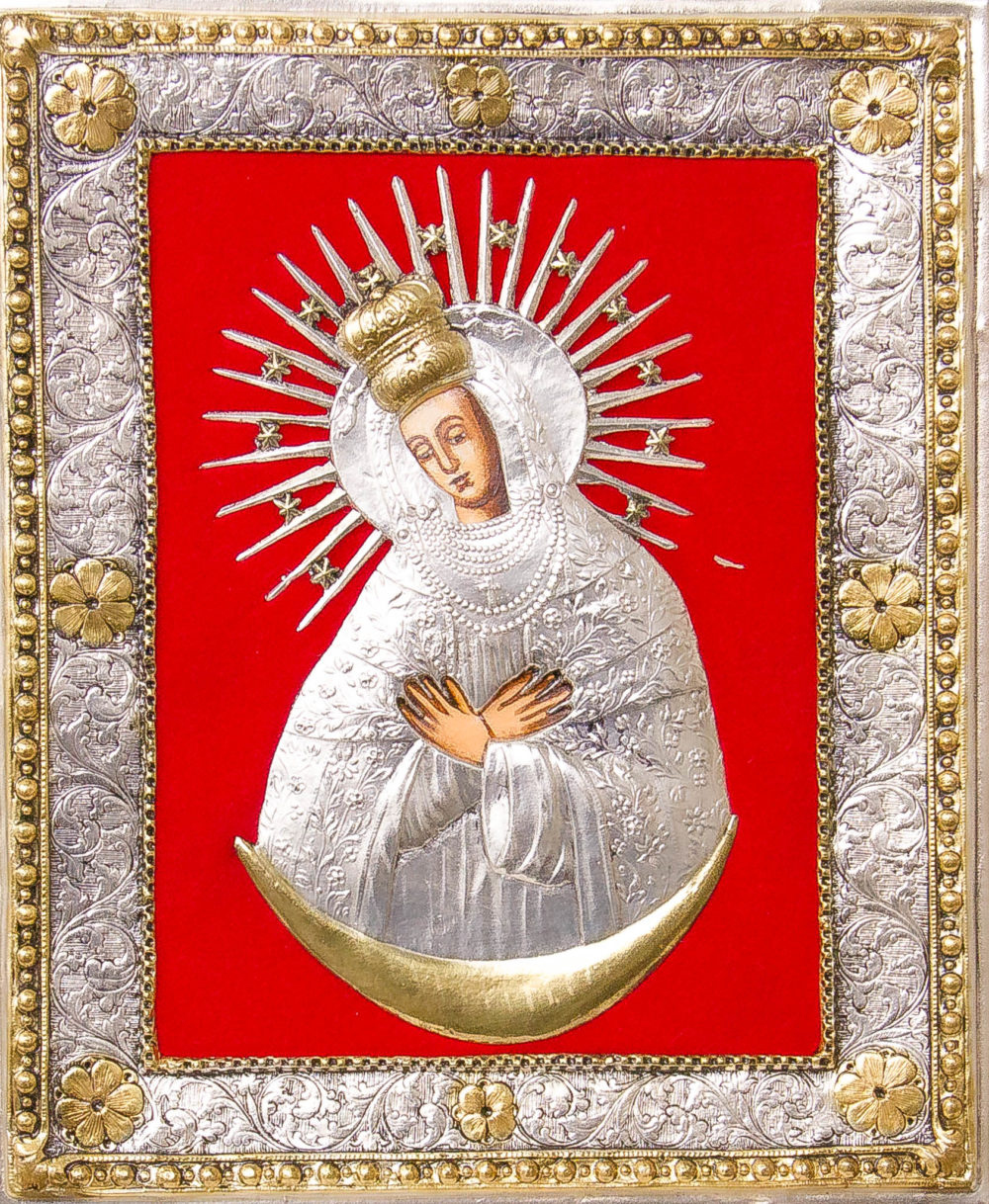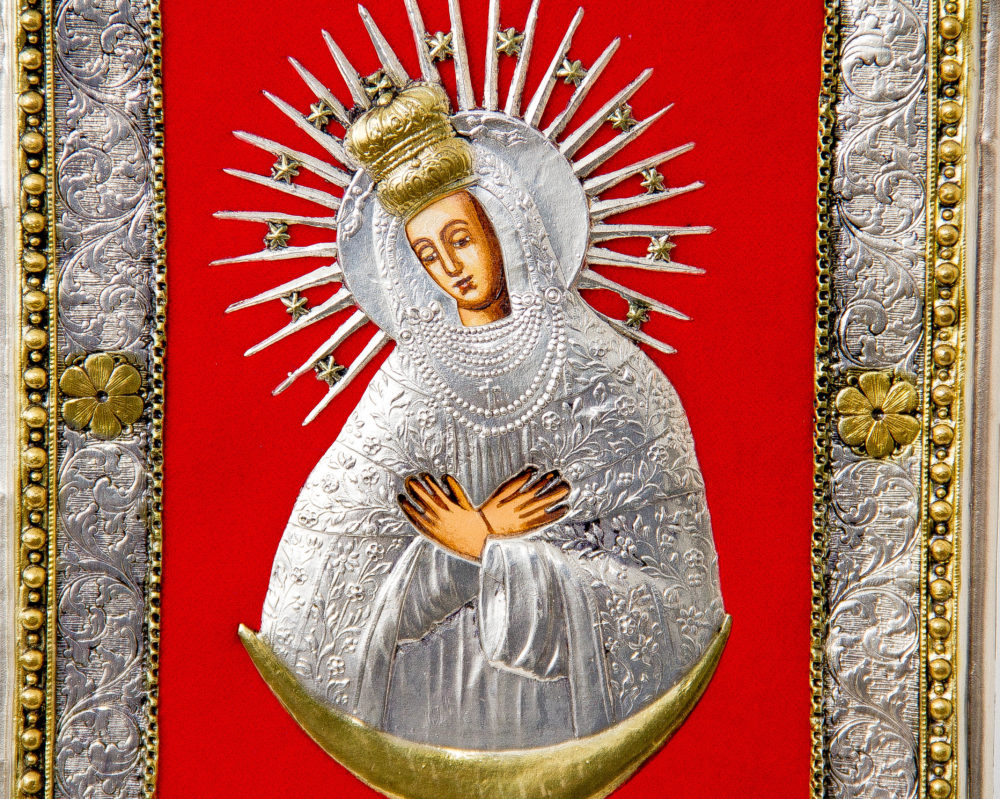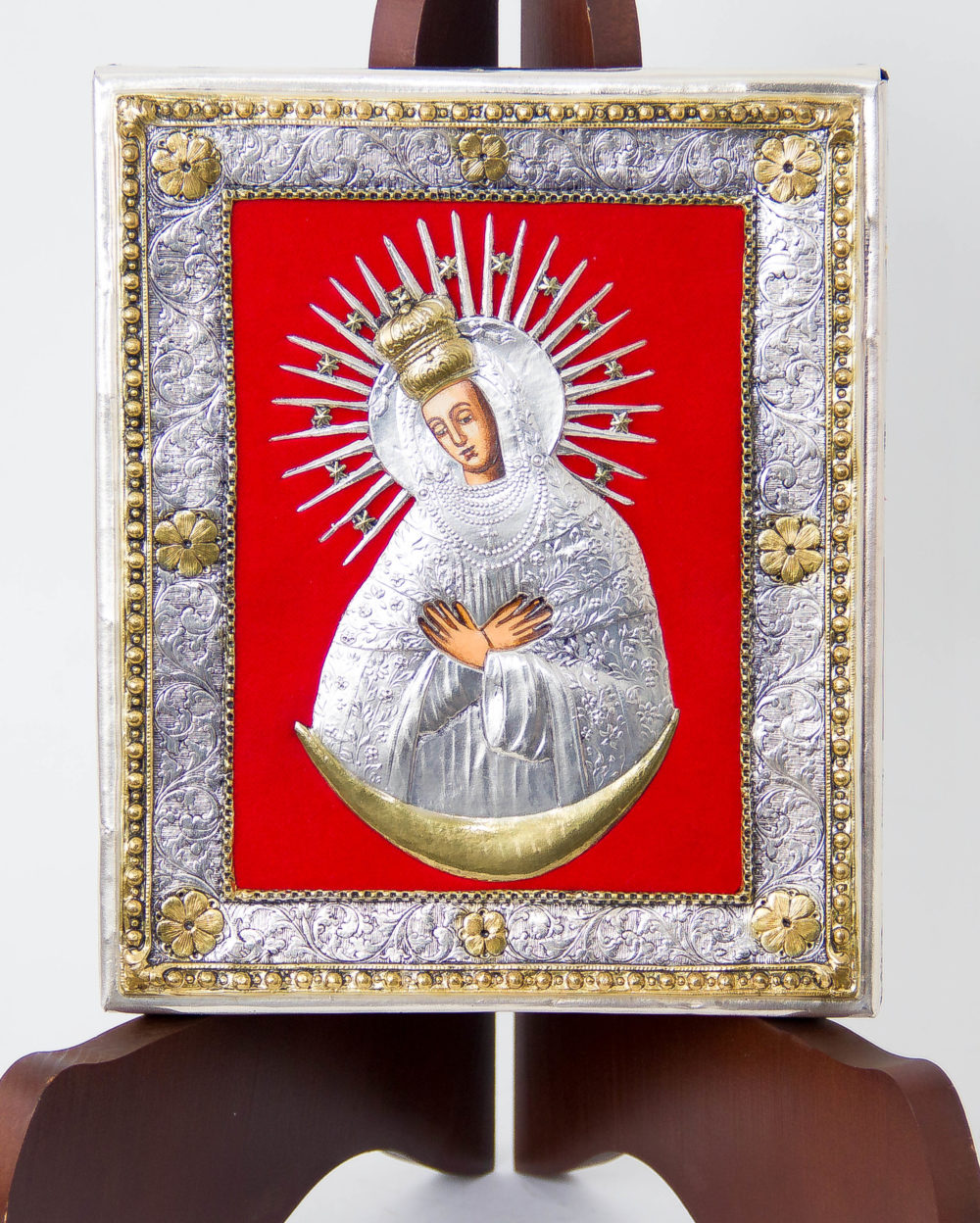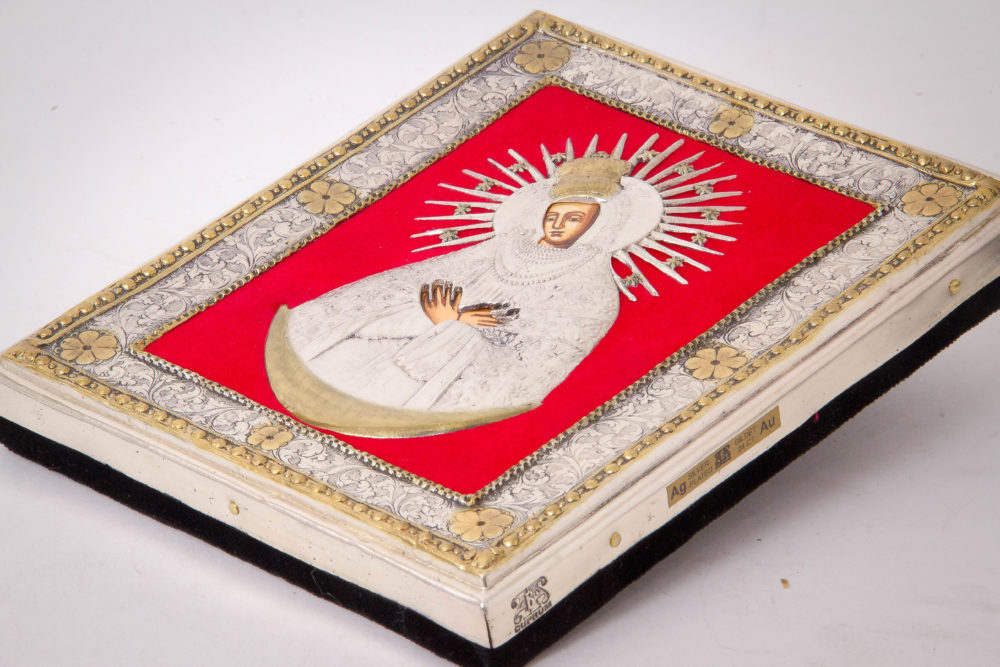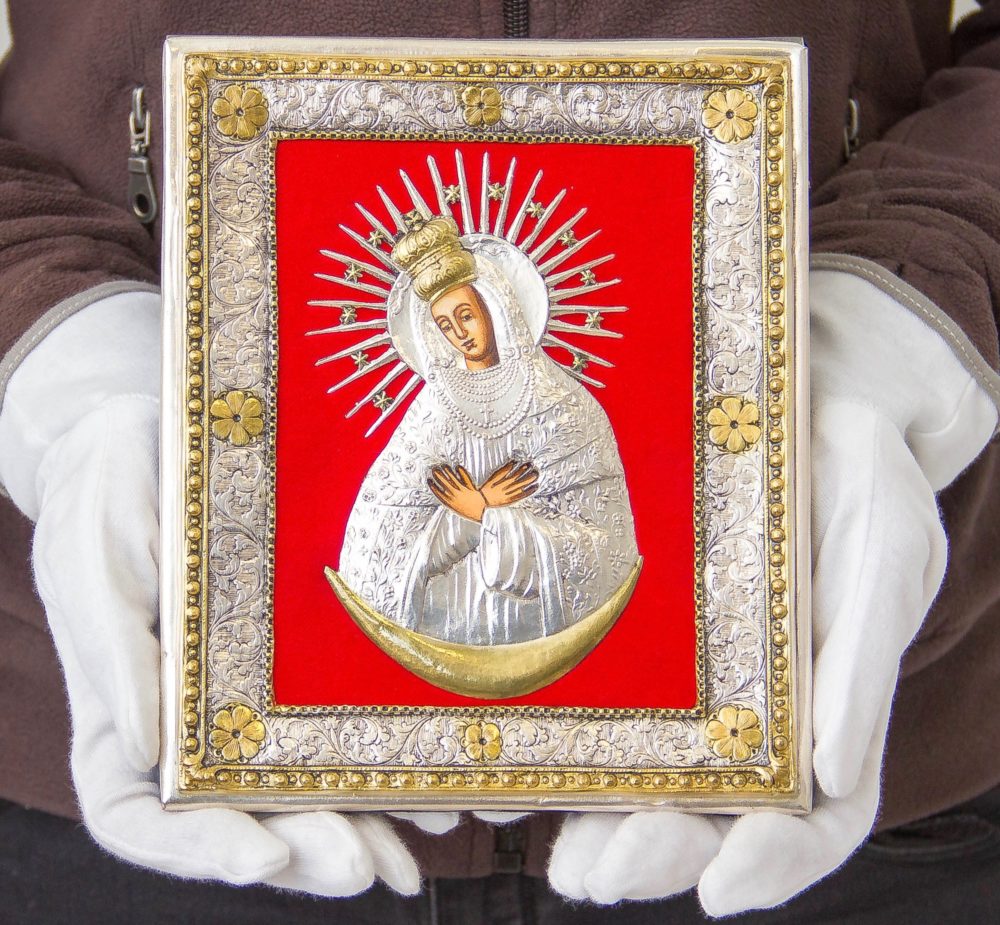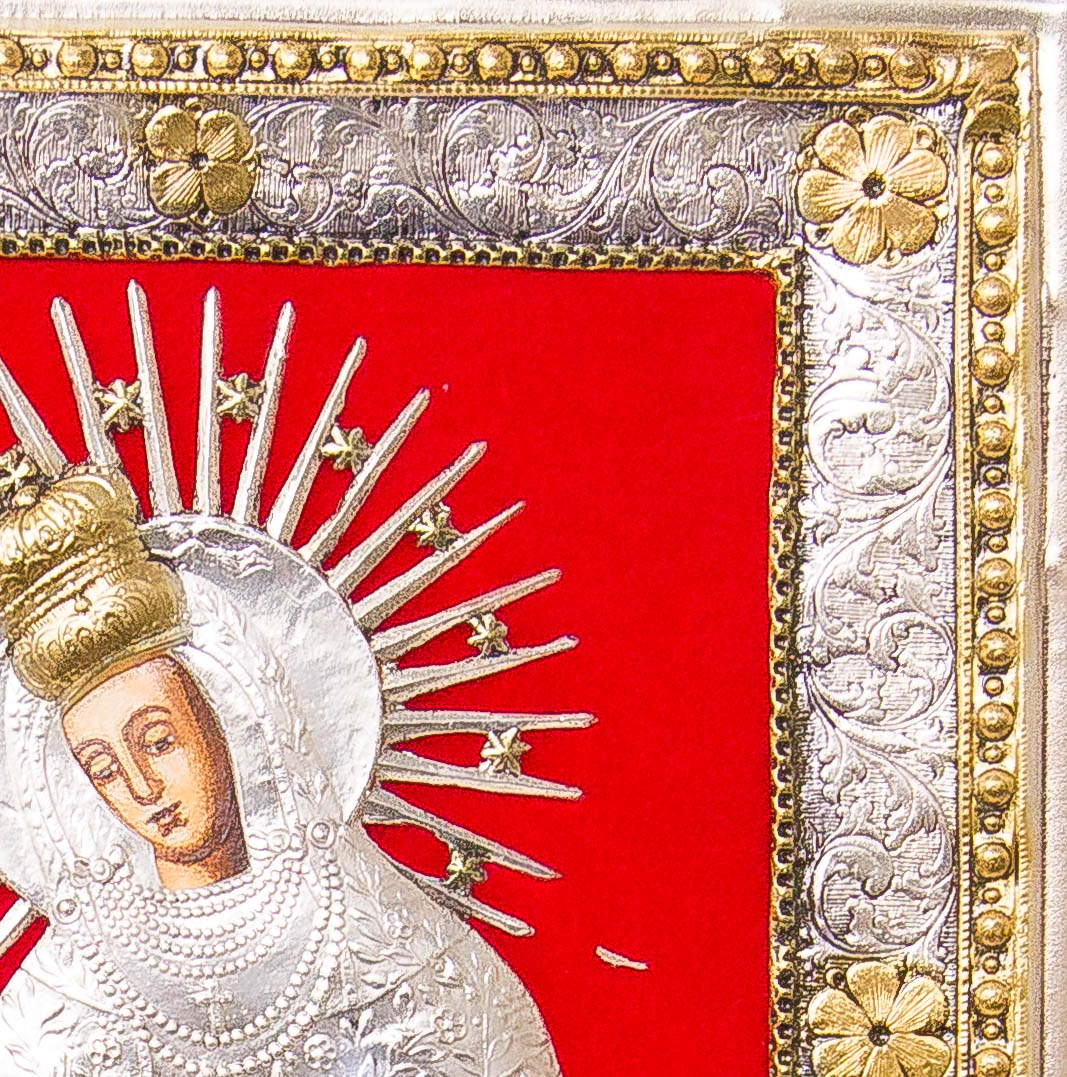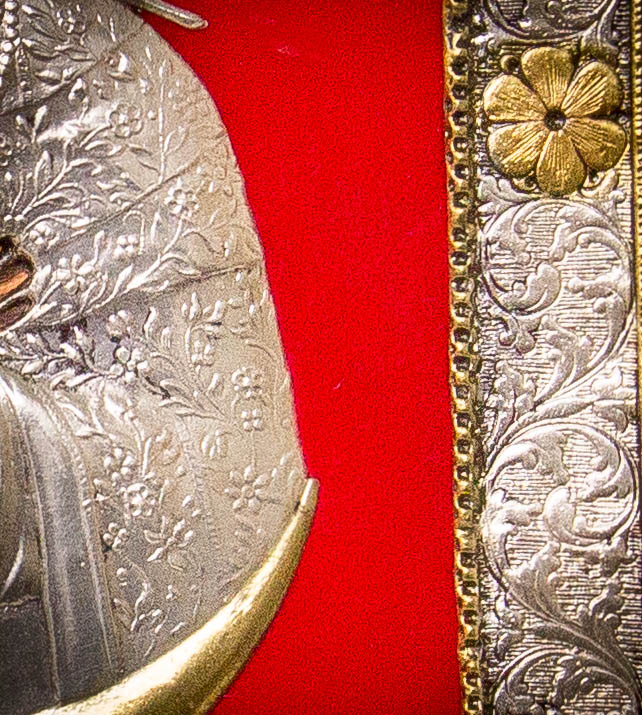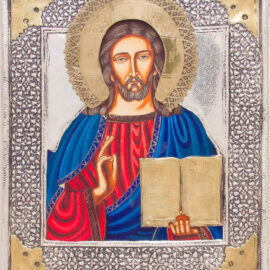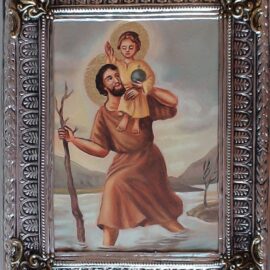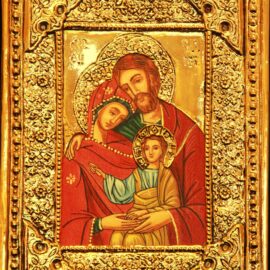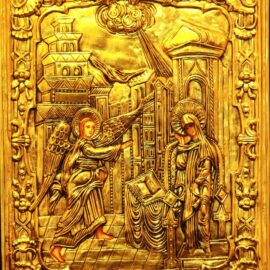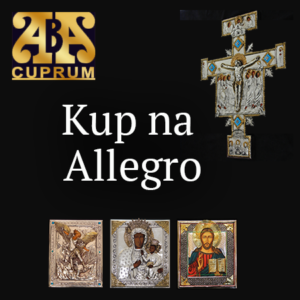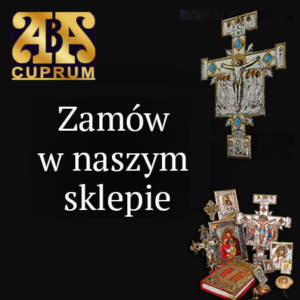Description
Our Lady of Ostrobramska was in Vilnius
in 1346, brought by the Grand Duke of Lithuania Olgierd of Corsica during one of his many war expeditions. He gave it to his wife Julian, who gave it to the Holy Trinity Monastery, which was located at the end of the city (called the sharp end), where two main roads to Moscow and Polotsk were coming down. The icon of the Mother of God was placed above the Ostra Brama according to the Eastern custom. After the union of 1596, by the decree of the Polish king Zygmunt (20.02.1609), the icon, like the majority of the church in Vilnius, was taken away from the Orthodox Church and handed over to the Uniates. From 1624, the Carmelites began to perform together with the Uniates. During the Polish war with Russia in 1655-1661, the Carmelites deported the holy image to Królewiec. She returned to her previous place in 1671 as a Catholic Icon of the Annunciation, which presents Our Lady in "Beloved." He loves, he loves the Lord God without limits and what God tells him to do. "Here I am, the handmaid of the Lord" - the representative of the human race.
This character loves and loves everyone who comes to her. It also unites everyone regardless of religion and nationality. And - as Fr. Wacław Oszajca in the poem Ostra Brama:
"She is listened to in the litany of Lithuanian, Polish and Russian words for the homonymous."

